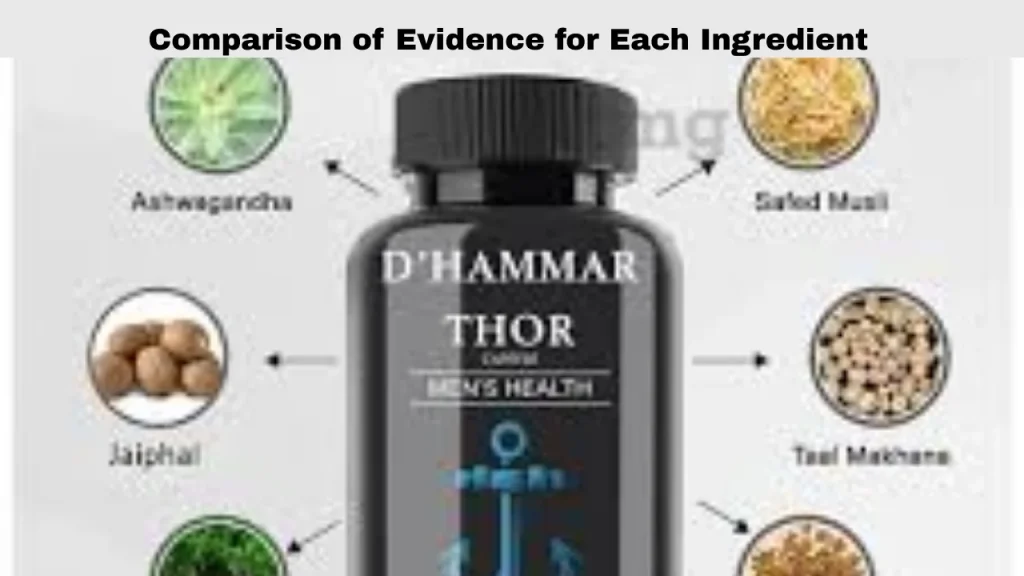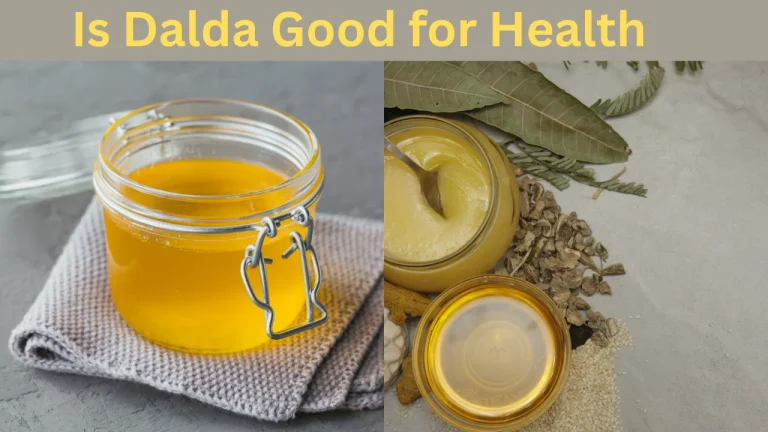Are the Ingredients in Hammer of Thor Scientifically Backed?

When people search for natural supplements that promise to boost vitality, one product often mentioned is Hammer of Thor. Many wonder, Are the Ingredients in Hammer of Thor Scientifically Backed? This question matters because people want proven health benefits, not empty claims. To understand this better, we need to explore the science behind each ingredient and see what modern studies say.
In this article, we will take a closer look at How Each Ingredient in Hammer of Thor Supports Men’s Health and whether research supports the claims. While traditional medicine has long used herbs for energy and strength, scientific evidence is essential in today’s world.
What is Hammer of Thor?
Hammer of Thor is marketed as a male enhancement supplement that promises to increase stamina, improve testosterone levels, and support sexual performance. It is often advertised as a herbal blend that combines Ayurvedic ingredients with natural extracts. These claims attract attention, but Are the Ingredients in Hammer of Thor Scientifically Backed? The answer depends on how much research exists for each plant or compound used in the formula.
Why Scientific Evidence Matters
Supplements are a billion-dollar industry, but not every claim is trustworthy. Scientific evidence matters because it separates myth from fact. When people consume herbal capsules, they want to know if the active ingredients work in the body. Without real studies, claims remain marketing language. So, asking Are the Ingredients in Hammer of Thor Scientifically Backed? is not only fair but necessary.
Common Ingredients in Hammer of Thor
Different versions of Hammer of Thor list varying ingredients, but some herbs and minerals appear regularly. These include Ashwagandha, Shilajit, Mucuna pruriens, Shatavari, Safed Musli, Ginger, Nutmeg, and Gokshura. Traditional medicine systems such as Ayurveda praise these herbs for boosting vitality and reproductive health. But what does modern science say about them?
Ashwagandha and Its Evidence
Ashwagandha is one of the most researched herbs in Hammer of Thor. Several clinical trials suggest it can reduce stress, increase testosterone, and improve semen quality. A 12-week study showed that men taking Ashwagandha experienced a measurable increase in testosterone compared to a placebo group.
Research also highlights Ashwagandha’s ability to lower cortisol, the stress hormone. Stress is often linked with reduced libido, so this effect may indirectly support sexual health. This makes Ashwagandha one of the few Hammer of Thor ingredients with strong backing. Still, it is important to note that while testosterone levels may rise, results vary among individuals.
Shilajit and Its Scientific Support
Shilajit is a mineral-rich substance found in the Himalayas. Traditionally, it has been used for energy and male vitality. Modern studies suggest Shilajit may increase testosterone and improve energy metabolism. However, the number of studies is limited, and many are small in size.
The concern with Shilajit is purity. Natural Shilajit can contain heavy metals like lead and arsenic if not processed correctly. This raises the question: Is Hammer of Thor Safe? Ingredients and Side Effects Explained is an important part of the discussion. While Shilajit shows promise, safety and purity control are essential before trusting the claims fully.
Mucuna Pruriens and Libido Support
Mucuna pruriens, also known as velvet bean, contains L-DOPA, a compound that affects dopamine levels in the brain. Higher dopamine levels are linked with better mood, motivation, and sexual desire. Some studies suggest Mucuna may help improve sperm count and motility, especially in men with fertility issues.
While these findings are encouraging, research is not as extensive as it is for Ashwagandha. More large-scale human trials are needed to confirm these benefits. For now, Mucuna remains a traditional herb with moderate scientific support.
Shatavari and Hormonal Balance
Shatavari is an herb traditionally linked to hormonal balance. It has been used in Ayurveda for female reproductive health but is also included in some male vitality formulas. Current scientific studies on Shatavari’s effect on men are limited. Most available research focuses on women’s health, particularly menopause and fertility.
Therefore, while Shatavari has a place in traditional use, modern clinical trials do not strongly confirm its benefits for male performance. This means its role in Hammer of Thor remains more traditional than scientifically proven.
Safed Musli and Strength
Safed Musli is often called a natural aphrodisiac. It is widely used in India to improve strength and endurance. Some animal studies show increased testosterone and improved sexual behavior in male rats. However, human studies are lacking.
Without proper human trials, it is difficult to say whether Safed Musli’s benefits apply to men in real-world conditions. This highlights why the question Are the Ingredients in Hammer of Thor Scientifically Backed? has mixed answers.
Ginger and Nutmeg
Ginger is well studied for its role in digestion, anti-inflammation, and improving circulation. Good blood circulation is important for sexual performance, so ginger may provide indirect benefits. However, no direct studies confirm ginger improves testosterone or sexual stamina.
Nutmeg, on the other hand, is sometimes linked with mood improvement and relaxation. In small amounts, nutmeg can act as a stimulant, but in larger doses, it may be toxic. Current scientific evidence does not strongly link nutmeg with male enhancement.
Gokshura (Tribulus Terrestris)
Gokshura, also known as Tribulus Terrestris, is a popular herb in testosterone supplements. Animal studies show it may increase libido, but human research gives mixed results. Some trials find no significant change in testosterone levels.
Because of this inconsistency, Gokshura remains controversial. It may help with desire and energy, but its effects on hormones are not clearly proven. This makes its role in Hammer of Thor questionable from a scientific perspective.
Comparison of Evidence for Each Ingredient

To give a clear overview, here is a table showing how each ingredient is supported by science:
| Ingredient | Traditional Claim | Scientific Support Level | Notes |
|---|---|---|---|
| Ashwagandha | Boosts testosterone, reduces stress | Strong | Backed by multiple human studies |
| Shilajit | Increases energy, male vitality | Moderate | Some studies, but safety concerns exist |
| Mucuna Pruriens | Improves mood, libido, sperm count | Moderate | Promising, but needs more human trials |
| Shatavari | Balances hormones | Weak | Most studies focus on women |
| Safed Musli | Strength, stamina | Weak | Mostly animal studies |
| Ginger | Improves circulation, digestion | Weak | Indirect benefits only |
| Nutmeg | Mood, energy | Weak | Evidence not strong |
| Gokshura | Testosterone booster | Mixed | Human studies inconsistent |
Why Do People Still Trust It?
Even though not every ingredient has strong scientific backing, Hammer of Thor remains popular. The main reasons include traditional trust, cultural acceptance, and marketing appeal. Many people believe in ancient herbal practices and value natural approaches over chemical medicines.
However, belief and tradition are not the same as clinical evidence. Supplements should be judged by results proven in trials, not just traditional claims. That is why the debate continues: Are the Ingredients in Hammer of Thor Scientifically Backed?
Safety Concerns to Keep in Mind
When talking about supplements, safety is as important as effectiveness. Some Hammer of Thor products may not be tested for purity. Adulteration with synthetic drugs or heavy metals has been reported in unregulated herbal products. This is why consulting a doctor before starting any supplement is wise.
Ingredients like Ashwagandha are usually safe in moderate doses, but they may cause stomach upset or interact with thyroid and liver conditions. Shilajit may carry contamination risks, while nutmeg in high doses can be toxic. Without strict quality control, safety remains uncertain.
The Role of Lifestyle in Results
Even if the ingredients offer some support, supplements alone cannot create miracles. Factors like diet, exercise, sleep, and stress levels play huge roles in sexual health and stamina. A balanced lifestyle often makes a bigger difference than capsules. Supplements may help as an additional boost but should not replace healthy habits.
Final Thoughts
So, Are the Ingredients in Hammer of Thor Scientifically Backed? The answer is partly yes and partly no. Some ingredients like Ashwagandha have solid research showing real benefits for testosterone, stress reduction, and male vitality. Others like Shilajit and Mucuna show promise but need more studies. Ingredients such as Shatavari, Safed Musli, Ginger, and Nutmeg remain more traditional than proven.
This means Hammer of Thor may offer some support but should not be seen as a guaranteed solution. For men seeking better health, the best approach is combining evidence-based supplements with lifestyle improvements. Asking Are the Ingredients in Hammer of Thor Scientifically Backed? is an important step in making informed health choices.






